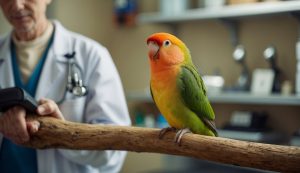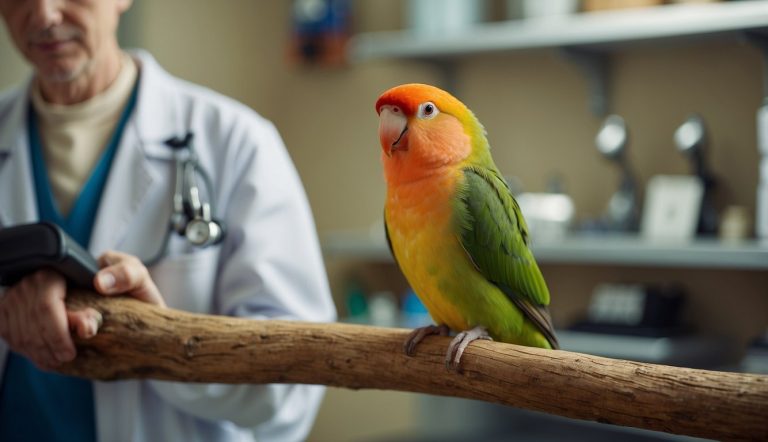Why Do Lovebirds Bite Each Other? – Understanding the Reasons Behind This Behavior
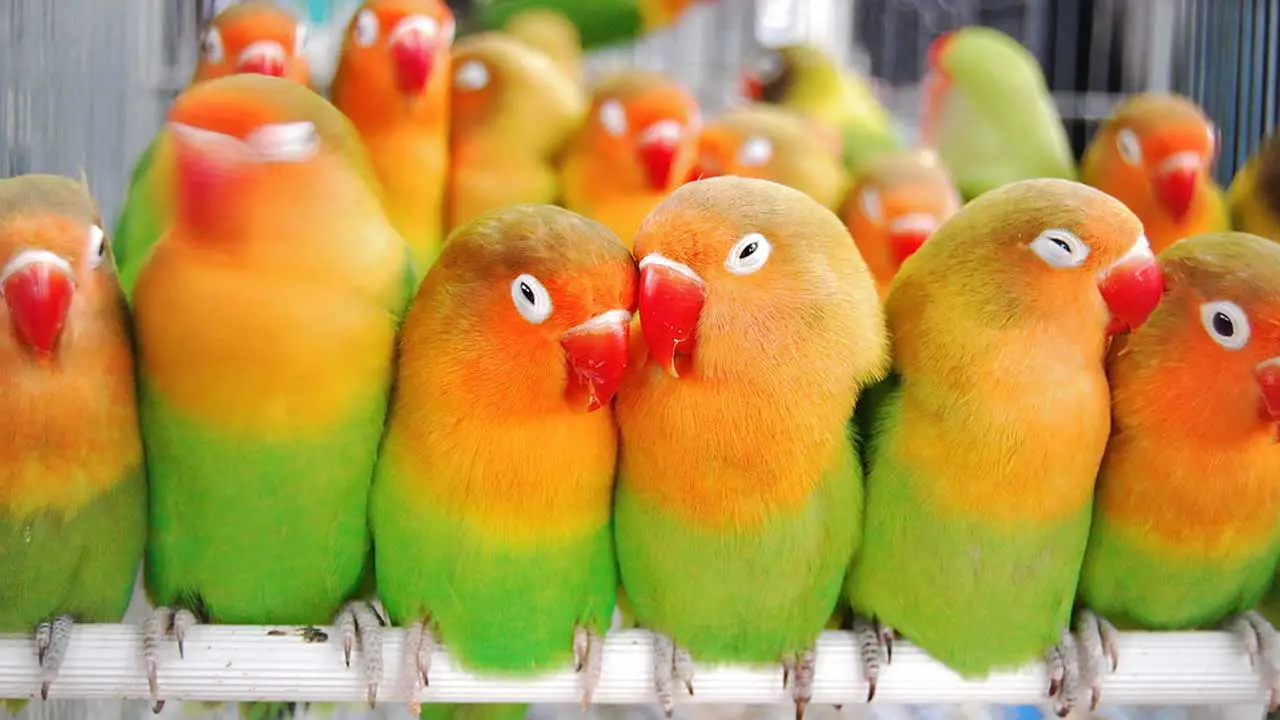
If you own lovebirds, you may have noticed that they sometimes bite each other. This behavior can be concerning, especially if it seems aggressive or frequent. But why do lovebirds bite each other? There are several reasons why this behavior occurs, and understanding them can help you better care for your pets.
Quick Summary
One common reason for lovebirds to bite each other is over food or toys. Lovebirds can be territorial creatures, and they may become possessive over certain items. This can lead to arguments and even physical altercations between mates. Additionally, lovebirds may bite each other during courtship behavior or mating season to establish dominance or show affection.
Stress and nervousness can also cause lovebirds to bite each other. If your pets are living in a noisy or chaotic environment, they may become irritable and lash out at each other. Similarly, if they feel threatened by family members or visitors, they may resort to biting as a means of self-defense. By understanding the reasons behind lovebird biting behavior, you can take steps to reduce stress and create a more peaceful environment for your pets.
Table of Contents
Understanding Lovebird Biting
What is Lovebird Biting?
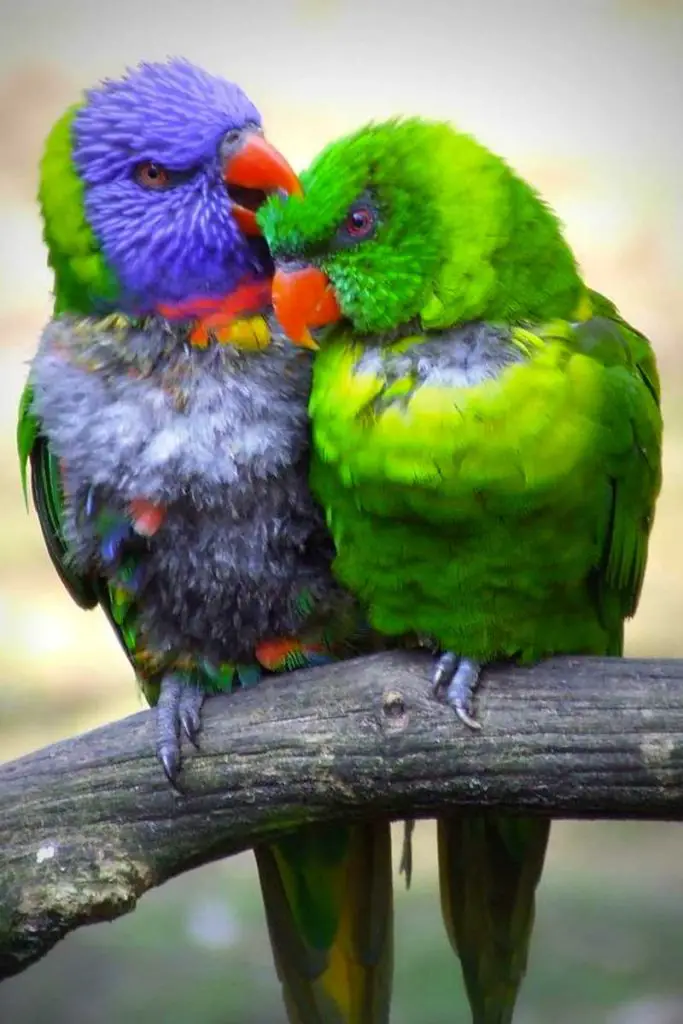
Lovebird biting is a common behavior observed in lovebirds. Biting can range from mild nibbling to aggressive biting.
Lovebirds use their beaks and feet to bite, and this can be a cause of concern for pet owners.
Reasons for Lovebird Biting
There are several reasons why lovebirds bite each other. Some of the reasons are:
- Territorial behavior: Lovebirds can be territorial, especially during mating season. They may bite to protect their territory from other lovebirds or animals.
- Protective behavior: Lovebirds can be protective of their mate, chicks, or toys. They may bite to defend them from perceived threats.
- Attention-seeking behavior: Lovebirds may bite to get attention from their owners. They may do this when they feel neglected or bored.
- Hormonal changes: Lovebirds go through hormonal changes during adulthood, and this can make them more aggressive. They may bite due to changes in their hormones and changing needs.
- Stress or fear: Lovebirds may bite when they are stressed or afraid. This could be due to changes in their environment, rough handling, or lack of mental stimulation.
- Playful behavior: Sometimes lovebirds may bite each other’s beaks or feet as a form of playfulness or affection.
It is essential to understand the reasons behind lovebird biting to address the behavior effectively.
Lovebird biting can be challenging to deal with, but it is possible to train and tame your lovebird. Providing mental stimulation, a healthy diet, and proper socialization can help reduce biting behavior in lovebirds. It is also crucial to provide a safe and comfortable environment for your lovebirds, including a spacious cage, toys, and perches.
Lovebird biting is a natural behavior that can be caused by several factors. Understanding the reasons behind the behavior and providing proper care and training can help reduce biting behavior in lovebirds.
Factors That Influence Lovebird Biting
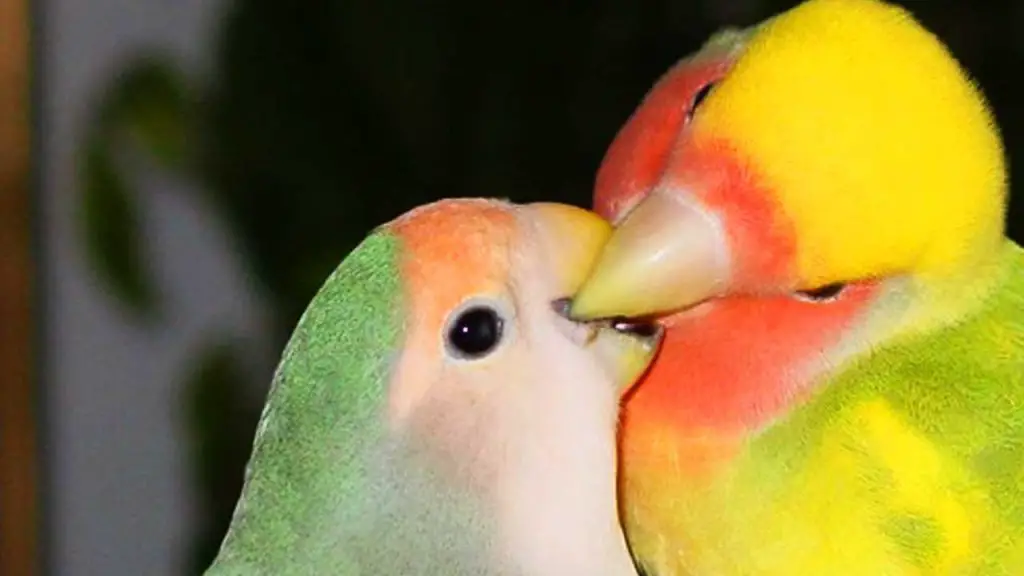
If you have lovebirds as pets, you might have experienced them biting each other or even biting you. There are several factors that can influence lovebird biting behavior. In this section, we will explore some of the most common factors that can cause lovebirds to bite, including environmental, behavioral, and physical factors.
Environmental Factors
The environment in which lovebirds are kept can have a significant impact on their behavior. For example, if they are kept in a noisy or stressful environment, they may become irritable and more prone to biting. Similarly, if they are kept in a small or cramped cage, they may become territorial and aggressive.
To prevent lovebirds from biting due to environmental factors, it is important to provide them with a spacious and comfortable living space. You should also try to keep their environment as quiet and stress-free as possible.
Behavioural Factors
Lovebirds are social animals that form strong bonds with their mates. However, they can also become jealous or territorial, especially during mating season. This can lead to aggressive behavior, including biting.
To prevent lovebirds from biting due to behavioral factors, it is important to provide them with mental stimulation and plenty of physical contact. You should also try to establish trust with your birds by feeding them by hand and spending time with them every day.
Physical Factors
Physical factors, such as hormonal changes or health issues, can also influence lovebird biting behavior. For example, during mating season, male lovebirds may become more aggressive and territorial, while female lovebirds may become more protective of their nests.
To prevent lovebirds from biting due to physical factors, it is important to provide them with proper nutrition and health care. You should also try to avoid rough handling or physical contact that may cause them to feel insecure or afraid.
Lovebird biting behavior can be influenced by a variety of factors, including environmental, behavioral, and physical factors. By understanding these factors and taking steps to address them, you can prevent your lovebirds from biting and ensure that they remain happy and healthy pets.
Preventing Lovebird Biting

If you own lovebirds or are planning to bring them into your home, it’s important to understand why they bite and how to prevent it.
Lovebirds can bite for various reasons, including fear, territoriality, dominance, aggression, and attention-seeking behavior. Here are some tips to help prevent lovebird biting:
Training and Taming
One of the most effective ways to prevent lovebird biting is through training and taming. This involves teaching your lovebirds to trust you and to associate you with positive experiences. Spend time with your lovebirds every day, offering them treats and speaking to them in a calm and reassuring tone. Avoid sudden movements and loud noises, as these can startle your birds and make them feel threatened.
When taming your lovebirds, start by offering them food from your hand and gradually work your way up to physical contact, such as petting and holding. Be patient and consistent, and never force your birds to do something they’re not comfortable with.
Mental Stimulation
Lovebirds are intelligent animals that require mental stimulation to stay happy and healthy. Boredom and stress can lead to biting and other aggressive behaviors.
Provide your lovebirds with plenty of toys, perches, and other forms of enrichment to keep them entertained and engaged. Rotate their toys and rearrange their cage regularly to prevent boredom.
Health and Diet
A healthy diet is essential for preventing lovebird from biting. Provide your birds with a balanced diet that includes fresh fruits and vegetables, high-quality pellets, and occasional treats.
Avoid feeding your lovebirds foods that are high in fat, sugar, or salt, as these can lead to health problems.
Regular veterinary check-ups are also important for maintaining your lovebirds’ health and preventing biting. A veterinarian can detect and treat any underlying health issues that may be causing your birds to bite.
Preventing lovebird biting requires patience, consistency, and a good understanding of your birds’ behavior and needs. By training and taming your birds, providing them with mental stimulation, and maintaining their health and diet, you can help prevent biting and build a strong bond with your lovebirds.
Conclusion
In conclusion, lovebirds bite each other for various reasons, including hormonal changes, territorial disputes, and playfulness. The biting behavior is more prevalent in female lovebirds and peach-faced lovebirds. It is essential to understand your lovebirds’ behavior and provide them with enough space, food, and toys to prevent biting incidents.
If you notice your lovebirds biting each other excessively, it is crucial to identify the cause and take appropriate measures to stop the behavior. You can try separating the birds temporarily or providing them with separate cages to reduce territorial disputes.
Additionally, providing your lovebirds with enough toys and perches can help reduce biting behavior. You can also try training your lovebirds to discourage biting behavior. Reward good behavior with treats and avoid punishing your birds, as this can cause them to become more aggressive.
Overall, understanding your lovebirds’ behavior and providing them with a comfortable and safe environment can help reduce biting incidents. Remember to seek professional help if the biting behavior persists, as it may be a sign of underlying health issues or behavioral problems.

